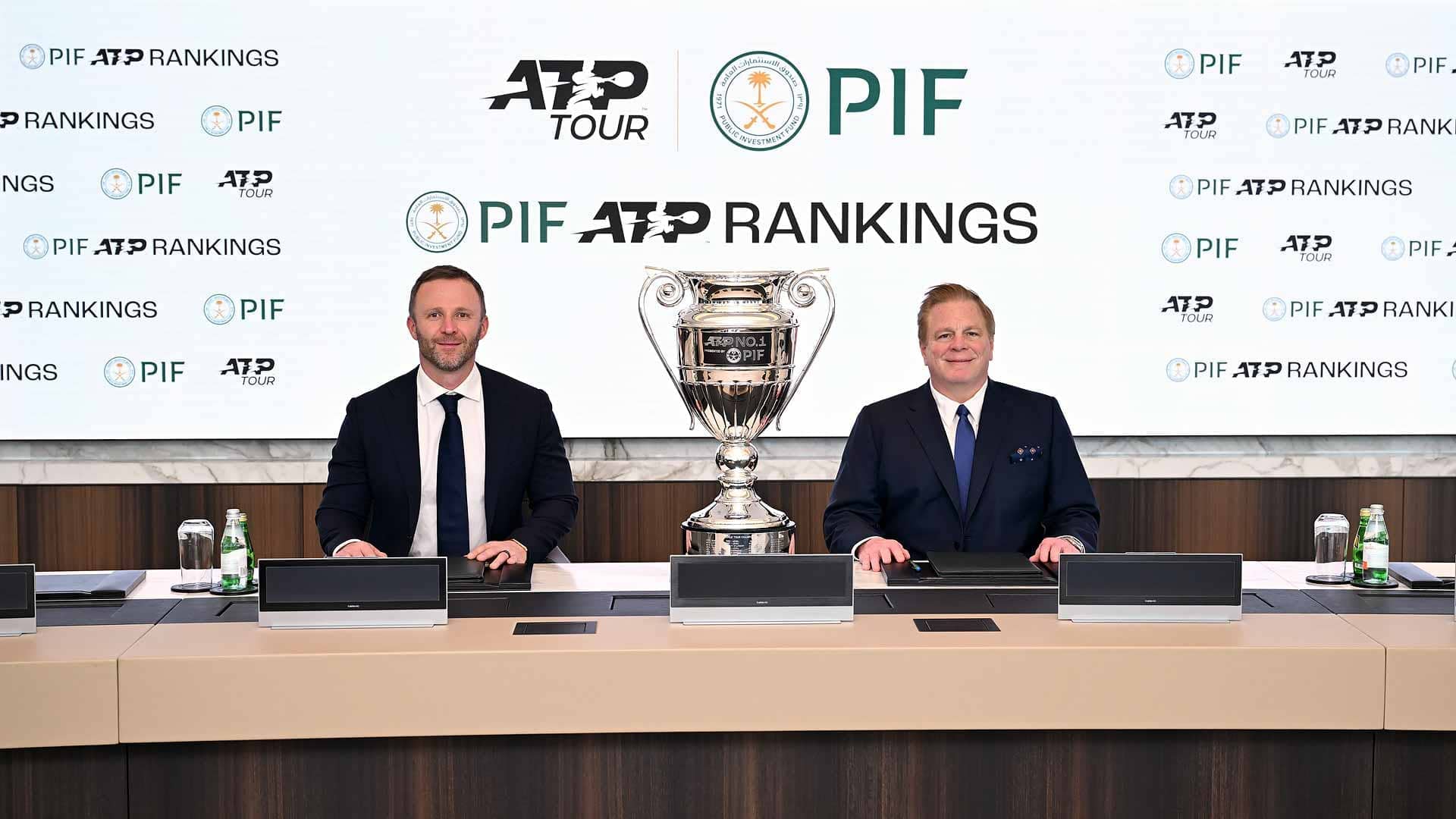On Wednesday the ATP announced a five-year deal with the Public Investment Fund, Saudi Arabia's sovereign wealth fund, that will give it naming rights over the player rankings in men's tennis. There will soon be courtside PIF branding at several of the season's biggest tournaments: Indian Wells, Miami, Madrid, Beijing, and the ATP Finals. In contrast to the lengthy and doomed power struggle that played out in pro golf, the tennis tours seem eager to roll over and take their money.
Back in 2018, Rafael Nadal and Novak Djokovic agreed to play an offseason Saudi exhibition match in Jeddah. That match was announced a day after reports of the killing of journalist Jamal Khashoggi inside a Saudi consulate in Turkey. The players, who said they'd agreed to the match a year in advance, eventually called it off, citing an ankle issue for Nadal. In the years since, Saudi Arabia became a regular stop for players to schedule an offseason cash grab, and now it hosts an official ATP event. Starting in 2023, the ATP hosted its year-end showcase for promising young players, the Next Gen Finals, in Jeddah, and will continue doing so through 2027. A full-on, high-profile ATP tournament cannot be far off.
Meanwhile, the women's tour is in talks to put its year-end WTA Finals in Riyadh at the end of 2024. Those rumors inspired big names in the women's game to speak out on the possibility of top players competing in a country where women lack equal rights. Billie Jean King spoke in favor of the Saudi partnership, essentially arguing that direct engagement is the only way to change local social mores; you can hear her expand on this argument in this November interview with The Tennis Podcast. Meanwhile, Chris Evert and Martina Navratilova wrote a Washington Post op-ed in January arguing strenuously against the Saudi incursions into women's tennis. They wrote that they helped build the WTA "to empower women in a male-dominated world," and objected to this potential host. "Not only is this a country where women are not seen as equal, it is a country where the current landscape includes a male guardianship law that essentially makes women the property of men," the column read. "A country which criminalizes the LGBTQ community to the point of possible death sentences."
The women's tour looks to be in a spotty place operationally and financially, which might make it vulnerable to overtures from deep-pocketed sportswashers. Last year, the WTA looked poised to place the WTA Finals in Saudi Arabia, before pivoting last-minute to a dysfunctional event in Cancun that left players unhappy. In March 2023, the WTA sold a 20 percent stake to private equity firm CVC Capital Partners for a $150 million investment. The tour has also been struggling to make up the money lost in its temporary boycott of China, which voided a $140 million deal to host the WTA Finals there. At the end of 2021 the WTA announced that it would be suspending its events in China, as CEO Steve Simon demanded a full investigation into tennis player Peng Shuai's allegations of sexual assault against a high-ranking government official. In April 2023, the WTA caved and announced it was resuming events in China. "We've been in this for 16 months and we are convinced that at this point our requests will not be met," Simon said. "To continue with the same strategy doesn't make sense and a different approach is needed. Hopefully, by returning, more progress can be made."
The Saudis are also making their appeal directly to beloved players. Back in 2018, when Nadal was reconsidering his first-ever Saudi exhibition, he expressed some doubt. "I know something happened very bad inside [the consulate] there. And my team is talking to them, to analyze the things," he said. "I hope the things will clarify as soon as possible." Last month, Nadal announced that he was an ambassador for the Saudi Tennis Federation.
In an interview with the Spanish radio station COPE earlier in February, Nadal "swore" that he had not signed a multimillion-dollar contract with Saudi Arabia and that the money wouldn't improve his life; he said he took the gig because he was hopeful about the future. When asked what would happen if there were a gay tennis player, Nadal said, "In my academy he won't have problems; in the country I don't know."
"The changes can't be from night to day, we need to adapt and Arabia is in a process of change and I think that it's going to improve all of these facets," Nadal said. "If that doesn't happen, I'll have been mistaken, but I want to contribute to this change, so that it's a more sporting country, and that men and women can practice tennis in total equality, and that's what they are telling me [they want]. I don't think they are hiring me to sportswash their image. I can do nothing or I can accept the challenge, which is what I've done."
Nadal will play his first match in the country later this year, in an October exhibition alongside Djokovic, Daniil Medvedev, Jannik Sinner, Carlos Alcaraz, and Holger Rune. (Though there are no dates locked in yet, that's a month in which there are still several big ATP events to play.) The future stars of men's tennis will probably fail to remember a time when the ATP wasn't fully entangled with petrostate sovereign wealth. Eventually Nadal will have to look back and figure out whether that was such a good idea, or if he was indeed mistaken.






